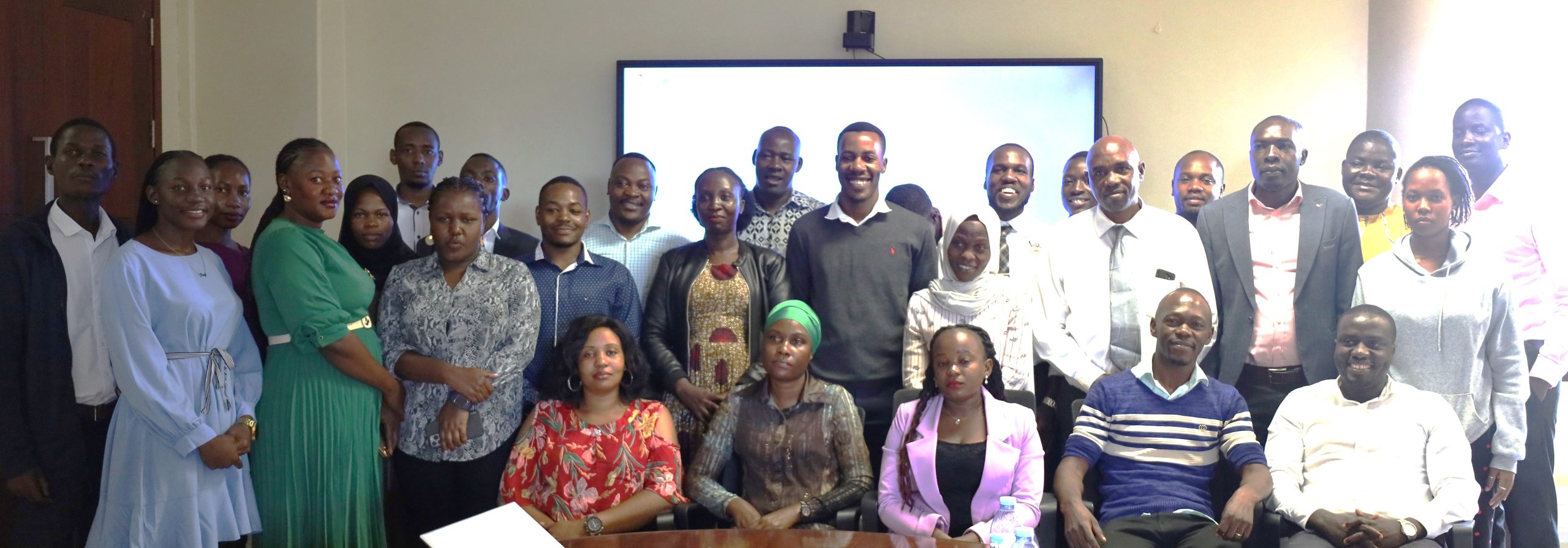In light of recent findings from a comprehensive study on the effects of digitalization on youth employment, scholars, including Dr. Matovu Fred, the Principal Investigator, are calling for a significant expansion of the private sector to address the rising unemployment rates among educated youth. The research, which delves into how the youth in Uganda are adapting to technological advancements, highlights several key areas that require urgent policy intervention.
The study reveals that Ugandan youth are increasingly adapting to technological changes through self-education, peer-to-peer learning, and continuous formal education. Despite their proactive approach, only a few organizations are offering necessary training for technological adaptation, leaving many youths to navigate these changes on their own.
Importantly, the youth have shown a strong willingness to invest in acquiring digital skills to remain competitive in the job market. Many see the digital trend not as a threat but as an opportunity to secure more decent jobs, including remote work opportunities and the ability to undertake multiple jobs simultaneously.

Dr. Fred Matovu, the Project PI
Policy Recommendations
Based on these findings, the researchers have put forward several policy recommendations:
- Expansion of the Private Sector: There is a pressing need to expand the private sector to absorb the growing number of educated youth entering the job market. This expansion is critical to providing more employment opportunities and leveraging the skills of the young workforce.
- Improving Internet Connectivity: To support uninterrupted use of digital systems in workplaces, it is essential to improve the reliability of internet connectivity. This improvement will ensure that digitalization efforts are not hampered by technical issues, enabling smoother and more efficient work processes.
- Reducing Data Costs: Lowering subscription fees and the cost of data is crucial to expanding bandwidth availability, which is necessary for activities such as big data analytics. Affordable internet access will empower more youths to engage in digital learning and work.
- Enhancing Cybersecurity: The research underscores the need for central coordination of cybersecurity safeguards. Implementing early warning systems for hackers and related threats will protect company systems and bolster the digital economy’s integrity.
- Reliable Data Protection Systems: Ensuring that data protection systems are trustworthy is vital. Building trust in enterprise data among third-party users and government agencies, such as the Uganda Registration Services Bureau (URSB), Uganda Revenue Authority (URA), and Kampala Capital City Authority (KCCA), will encourage more businesses to digitize their operations.
Government and Private Sector Collaboration

Participants that attended the dissemination workshop
The study’s authors emphasize that collaboration between the government and private sector is essential to implementing these recommendations effectively. By working together, they can create an environment that not only supports the digital adaptation of the youth but also drives economic growth and job creation.
In response to these findings, government officials and private sector leaders are urged to prioritize these policy recommendations. Expanding the private sector and improving digital infrastructure will play a critical role in harnessing the potential of Uganda’s youth, fostering innovation, and securing a brighter economic future for the nation.
As the digital landscape continues to evolve, these strategic measures will ensure that Uganda’s youth are not left behind but are instead at the forefront of the country’s economic transformation.
The research was funded by the government of Uganda through Makerere University Research and Innovation Fund.
The research team
PI: Fred Matovu: Principal Investigator (PI), Makerere University
Susan Kavuma: Co-PI, Makerere University
Hassan Mbaziira: Ministry of Gender, Labour and Social Development
Richard Sebaggala: Uganda Christian University, Mukono

